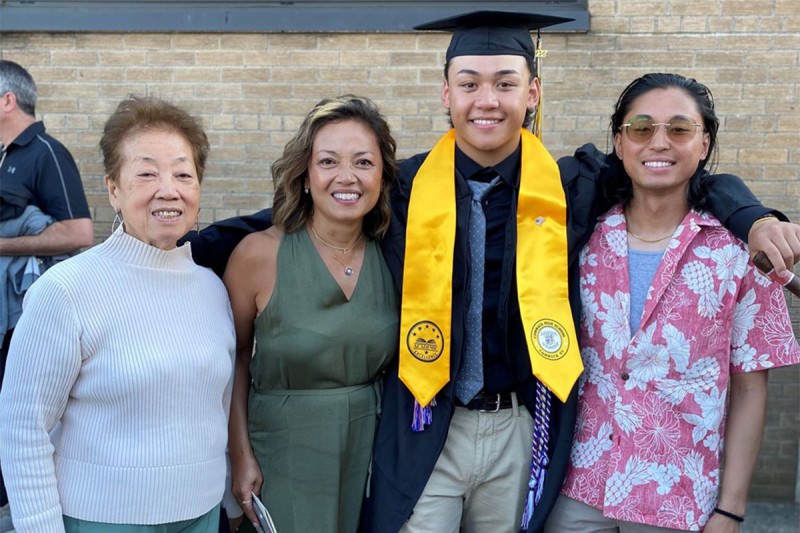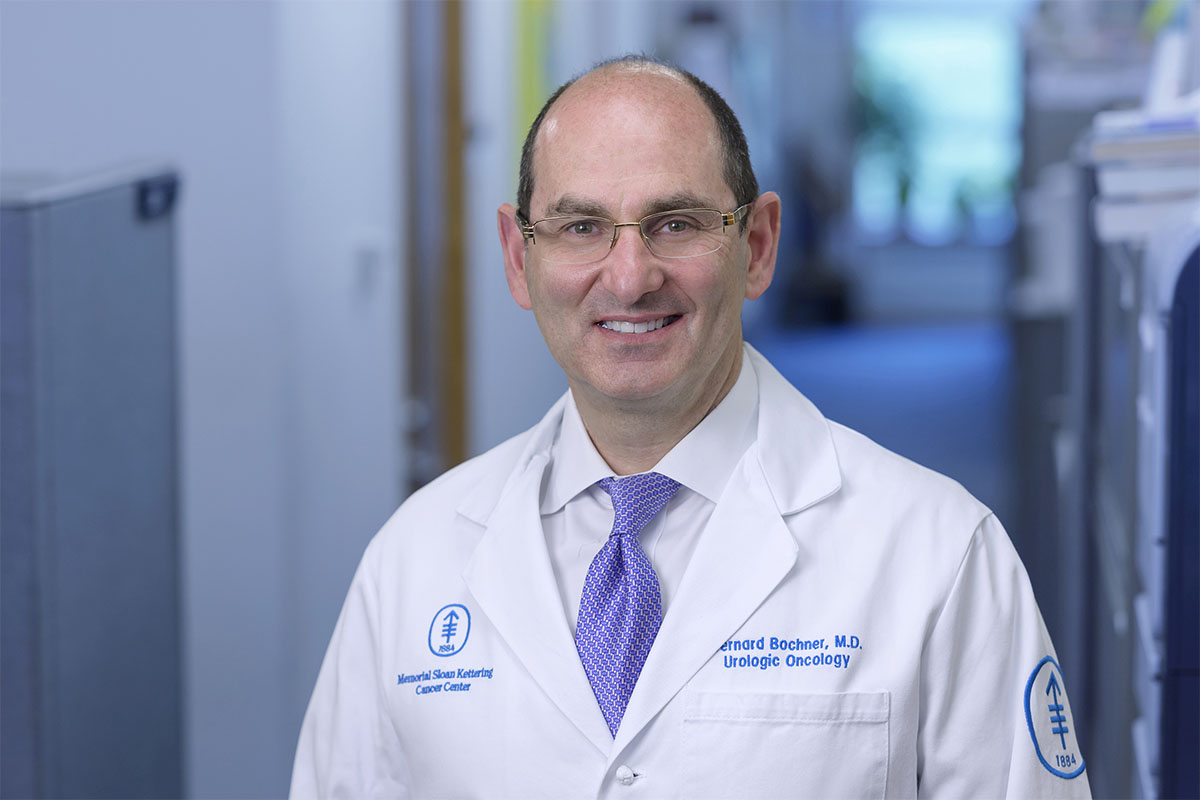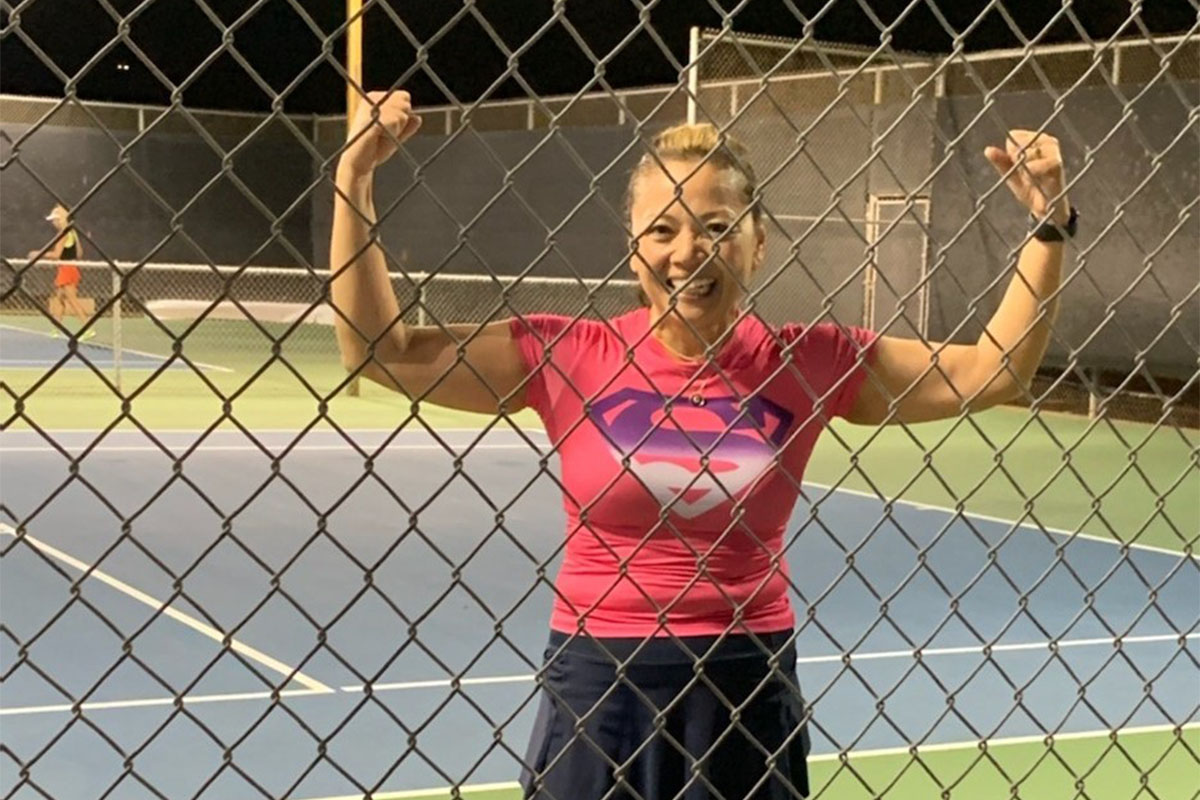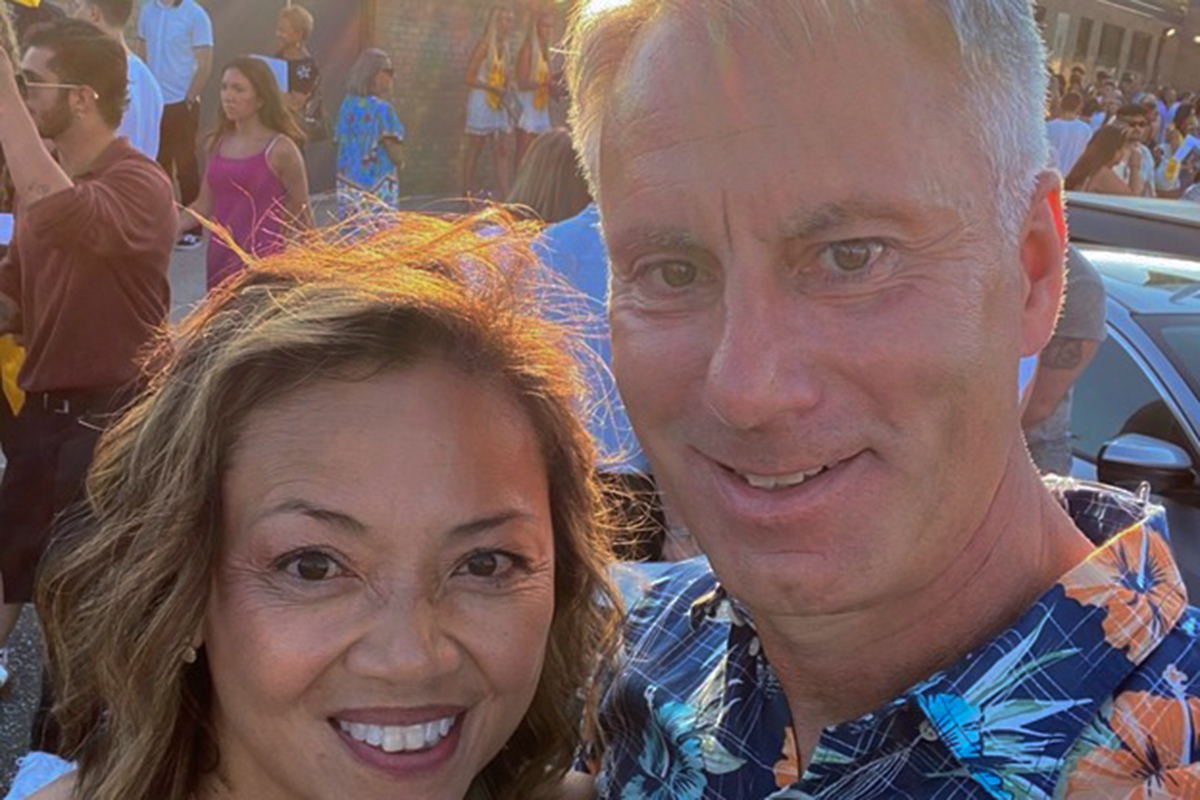
- Bladder removal (radical cystectomy) is an effective treatment for bladder cancer.
- A new study shows patients recover well from the surgery and have good quality of life.
When Toni Carlos was diagnosed with bladder cancer, she was relieved to learn the disease can be treated very effectively with bladder surgery. But she worried what life would be like after an operation, called a radical cystectomy, which removes the entire bladder as well as nearby lymph nodes and organs that may contain cancer.
Now a study shows that patients at Memorial Sloan Kettering Cancer Center (MSK) who have their bladder removed recover well and enjoy a high quality of life within two years. A team led by urologic surgeon Bernard Bochner surveyed 411 people who had a radical cystectomy at MSK. The patients reported no significant decrease in quality of life — even within the first three months after the operation.

“It’s understandable that people are concerned about how bladder removal will affect their lives, but this study shows we are providing excellent outcomes over the long term — that’s the home run,” Dr. Bochner says. “MSK does a very high number of these procedures.”
Toni is cancer free and says: “It’s strange to think it’s been only a year since the surgery because I can’t believe how normal I feel now.”
How did this study measure quality of life after a radical cystectomy?
In the study, Dr. Bochner and colleagues evaluated numerous quality-of-life issues following radical cystectomy, including:
- General quality of life and function
- Urinary function
- Sexual function
- Bowel function
- Body image
- Mental and emotional health
Overall, patients said their quality of life two years after the operation was equal to what it had been before surgery. Most people said they were essentially back to normal within three months.
Dr. Bochner explains that excellent postsurgical care from MSK nurses contributed to the strong results, which were reported in the March 2022 issue of European Urology.
“We hope these findings help more people feel comfortable choosing radical cystectomy without delay,” he says, “because surgery can provide a cure in most bladder cancer patients with early-stage disease. It remains the gold standard of treatment.”
Back to Normal After Bladder Removal: Toni’s Survival Story
In the summer of 2021, Toni was 53, living on Long Island, and had just entered into a serious relationship after being widowed for 11 years. Her hopeful new future took a turn when she found blood in her urine for several days in a row. A CT and cystoscopy — which allows doctors to examine the inside of the bladder — confirmed she had bladder cancer.
‘He made me feel safe right away’
Toni did not feel completely comfortable with the doctor who diagnosed her, so a friend suggested she go to MSK and see Dr. Bochner. He had treated the friend’s own bladder cancer years before and she said he was “wonderful.”
“I got an appointment within three days, and he was so welcoming and amazing from the moment I met him,” Toni says. “He made me feel safe right away. I knew he was the dude.”
Deciding on a bladder cancer treatment approach at MSK
To learn exactly how far her cancer had spread, Dr. Bochner did a procedure called a transurethral resection (TUR), which allowed him to take parts of the tumor and determine how far it had grown into the muscle wall. After the second TUR, he was convinced the bladder needed to come out to give Toni the best chance of cure.

Toni was hesitant at first, hoping there was another way.
“I said, ‘What if I change my diet? And we combine that with immunotherapy?’ ” Toni says. “He was very patient and let me come to the decision on my own, even though, deep down, there was really no other choice. He said, ‘When you’re ready to do the surgery, call me.’ It was not an easy decision for me, but I knew he had my back.”
Preparing for her radical cystectomy
After a couple of weeks, Toni was ready to go ahead with the radical cystectomy. Dr. Bochner explained that after bladder removal, there were several potential options for “urinary diversion” — the new way for urine to exit the body. He would not actually know which option (listed below) was possible until he did the surgery and saw where the cancer had spread:
- Neobladder. Toni’s preferred choice was for Dr. Bochner to create a “neobladder” from part of her small intestine. A neobladder is connected to the urethra and enables most people to urinate normally.
- Indiana pouch. If her urethra had cancer cells, Toni’s backup option was an internal pouch called an Indiana pouch, formed from the bowel and connected to a tiny opening created in the abdomen. A catheter inserted into the opening would allow her to drain the urine several times a day.
- Ileal conduit. If neither of the first two options were possible, Toni could receive an ileal conduit, in which a surgeon uses a segment of the intestine to direct urine through an opening into an external collecting bag.
Recovering after her bladder removal surgery
“Going into surgery was scary because I didn’t even know what I would have when I woke up,” Toni says.

Much to her relief, she awoke from the operation in October 2021 with a neobladder. She stayed in the hospital for 12 days while her digestive system slowly regained its normal function.
After Toni went home, she struggled at first to adjust and experienced leakage from her new bladder. But Dr. Bochner reassured her this was normal. He remained completely confident in her recovery and told her to keep doing her Kegel exercises — which strengthen pelvic muscles.
“He kept saying: ‘Don’t worry. You’re going to be just fine,’ ” Toni recalls. “He never wavered. He’s an amazing guy. I just had to learn a new way of going to the bathroom, and sure enough, I figured it out. My life went mostly back to how it was.”
The same was true for the patients in the recent study. About half received neobladders and half had ileal conduits. Those with ileal conduits had lower scores for body image but reported their physical function and emotional and mental health returned to normal. At the six-month mark, both groups reported their mood and anxiety levels were better than before the surgery.
“Older patients, who often are not neobladder candidates, should know that even most ileal conduit patients return to daily activities, including working, golfing, swimming, and traveling, albeit with some changes in body image,” Dr. Bochner notes.
Today, Toni enjoys a high quality of life
Toni continues to live her very active life, quelling any early concerns that it was going to change for the worse. She and her significant other, Matt, split their time between Long Island and Minnesota. She is a full-time attorney for a real estate title insurance company. She is also very physically active — having received Dr. Bochner’s blessing, Toni travels the country to play in national tennis tournaments, goes skiing, weight-trains, and more recently, started ballroom dancing with Matt. She also continues to keep up with her two boys — Jeremy, 23, and Ryan, 18 — both of whom snowboard, play tennis, and work out with Toni.
“Dr. Bochner deserves more accolades than I could ever give him,” she says. “He helped me through the recovery without ever judging, and now I’m back to doing everything I wanted.”